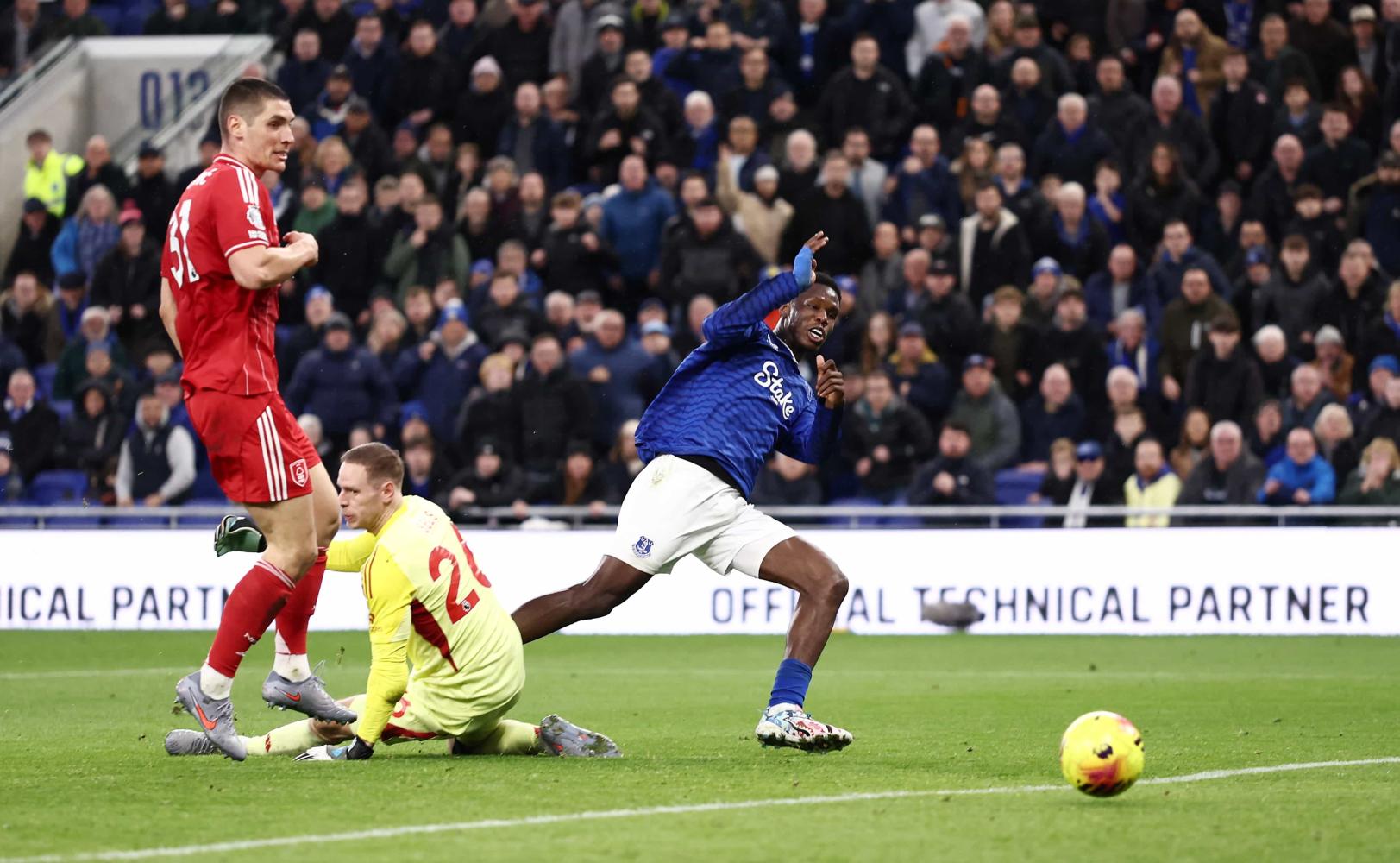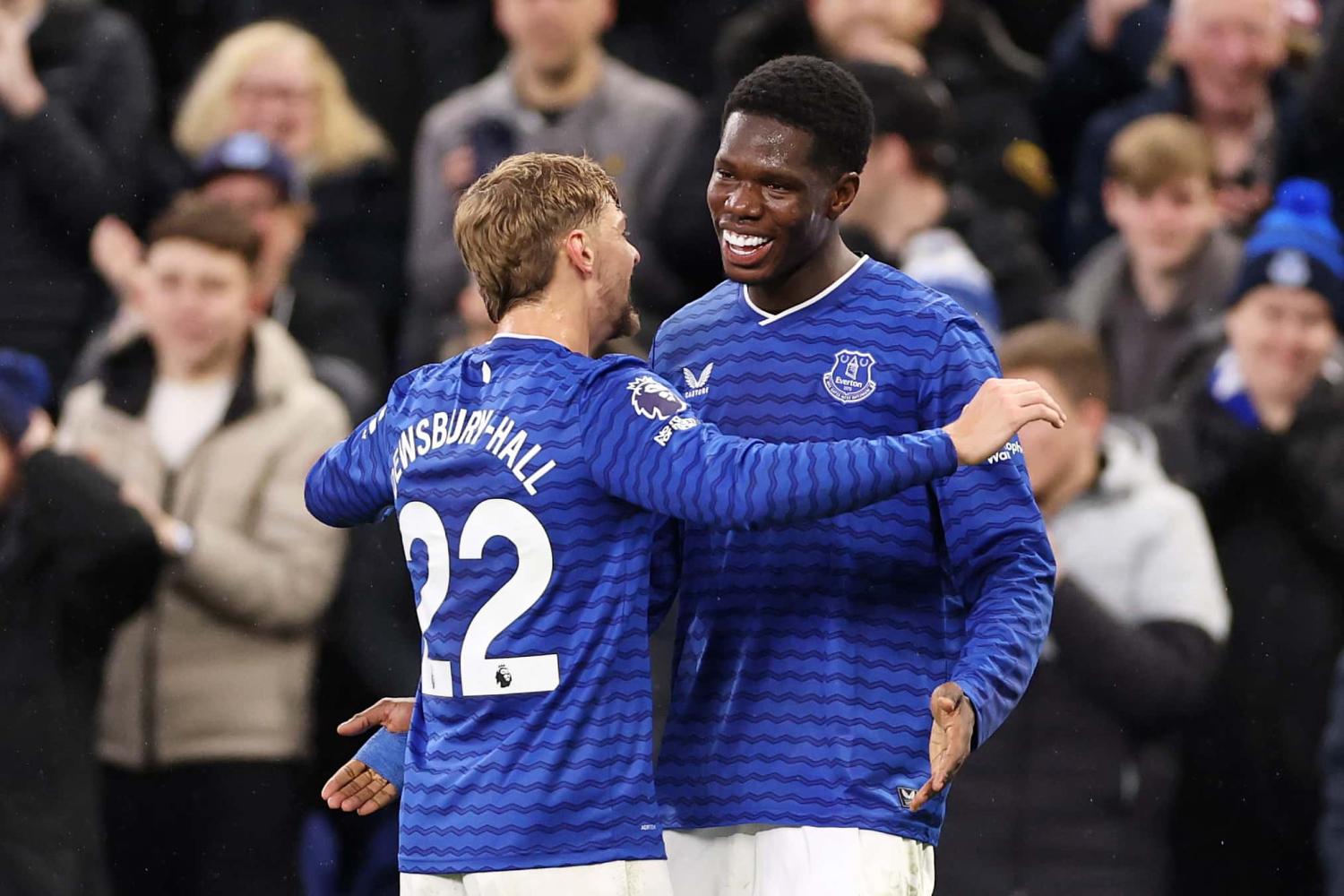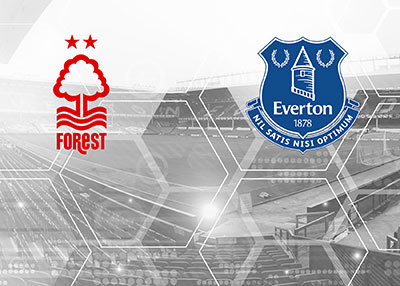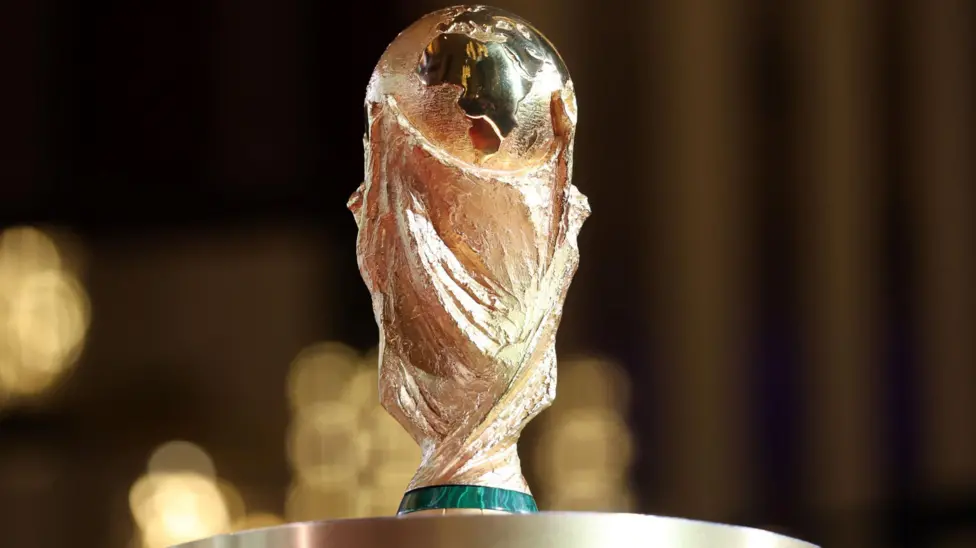VIEW FROM THE BLUE
The End of an Era
Part Three — Legend?
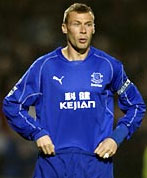
Duncan Ferguson: worthy of "legend" status?
Duncan Ferguson is without doubt one of the most controversial figures in Everton history, not least because of his disciplinary record and the disrepute in which he occasionally brought the club, but also because he can provoke such polarized opinions among Everton fans. There can be little doubt that Duncan has made an indelible mark on Goodison history in his decade-long association with the club, but it remains open to question and considerable debate whether or not he qualifies as an Everton legend.
That question in itself is complicated and depends very much on your definition or intepretation of the word "legend" seeing as, strictly, it pertains to myths or saints passed on down through the generations; football fans have, of course adopted the term to infer greatness upon players who have made an outstanding and immense contribution to their club.
It implies a certain longevity of laudible achievement, of footballing excellence, frequent acts of heroism and a nobility of service, both on and off the pitch. The names Dean, Lawton, Young, Harvey, Ball, Kendall, Latchford, Ratcliffe, Southall and Watson come to mind... does Duncan Ferguson deserve to be viewed on the same level as players of that calibre?
Ferguson might not have consistently displayed either the skill or finishing ability that would elevate him to the Gwladys Street Hall of Fame on his ability alone. There is no doubt that he possessed surprising ability with his feet for a player of his height, and at the peak of his powers, his aerial prowess was unmatched in the Premiership. Even in the last throes of his career when his goalscoring return was at its lowest, he put the fear of God into opposing defenders — as he emerged from the dugout in one of his last appearances in a Merseyside derby, Sammi Hyppia was caught on tape clearly muttering "oh, fuck" at the prospect of facing the towering striker — but his aerial threat was arguably his only world class talent.
And even there his impact was lessened, through no fault of his own, by the inability of a succession of managers to capitalise on that ability in the air. From Howard Kendall Mk II all the way through to David Moyes a decade later, there was an apparent refusal to make signing wingers capable of providing the service from the flanks that made him so devastatingly effective in his first couple of years at the club a priority. Instead, he suffered from the Route One malaise where the long angled ball from defence and Dunc's ability to hold the ball up became the favoured tactic.
Nevertheless, while his scoring rate of around a goal every three games may not put him in the category of "prolific" strikers, in the context of how Everton struggled during much of his 10-year Goodison career and how that undiagnosed sciatic complaint affected his performances, it is a pretty good return.
Of course, while he was renowned for certain abilities, his place in the hearts of Everton fans was as much symbolic as it was based on his goalscoring feats. As the club struggled through close calls with relegation and years of frustrating mediocrity, Ferguson was at times a beacon of hope, emblemeatic of the Toffee's struggles, and the first thing rival fans thought of when you mentioned the name "Everton." Supporters loved him for his commitment to the club and embraced the fact that he was as flawed as the Blues appeared to be to the outside world.
As already described, his role in keeping Everton in the Premiership in 1997-98 cannot be understated and even as late as the 2004/05 season he came through with vital goals to help keep the club on target for a Champions League qualifying place. Off the field, he was reputed to be an inspiration in the dressing room, was an ambassador for Everton with regular work for local charities and, somewhat at odds with his apparent shunning of the fans with his post-match dashes down the tunnel, regularly went out of his way to sign autographs for supporters.
But Duncan was as controversial and frustrating as he could be heroic. His injury record, his temperament, his litany of disciplinary problems, and the amount of money the club spent on his services made him as reviled in some quarters of the Everton faithful as he was loved by others.
By the end of the 2004/05 season, the five-year contract he signed upon his return from Newcastle had cost the club £8.5m in wages, for a return of just 45 Premiership starts and 22 goals. That works out to around £386,000 per league goal.
He never really appeared to mature sufficiently to keep his wild side in check on the pitch. Even when he was awarded the captaincy in an attempt to force him to adopt a more responsible attitude, his career was littered with unnecessary red cards and the resulting suspensions had a damaging affect on the team. Worse, he often chose the times when the club could least afford to lose him in which to lose his cool and earn a red card for aggressive behaviour. Of course, his card was marked with many referees which made leading the Everton line incredibly frustating for a player who traded on his aerial abilities, but there is no doubt that Duncan was frequently his own worst enemy.
That irresponsibility is perhaps where his credentials for "Goodison legend" come into question and ultimately fall down. Where the likes of Dean, Hickson, Labone and Watson were true greats because of their footballing prowess and their contributions to the club's image, Ferguson sometimes did as much to tarnish the Everton name as he did to feat it.
Moreover, how can a player qualify for legendary status when so many fans felt he tarnished the Everton captaincy, didn't want him to return from Newcastle, and wished he would retire and allow the club to move forward without him two years before he actually eventually did hang up his boots?
A true Everton legend he may not be, at least not to these eyes, but Big Dunc without doubt earned his place in Goodison folklore through crucial feats on the pitch and a colourful reputation off it. He was a cult figure among the majority of the fanbase and it was a devotion that, judging by rumours of the emptiness he feels now that he is no longer treading the Goodison turf, was reciprocated by a man who found among the people of Merseyside.
For better or worse, it's truly the end of an era, but the Big Yin has left us with some treasured memories that will likely live longer in the heart than the feeling that he never quite amounted to all that he could.

